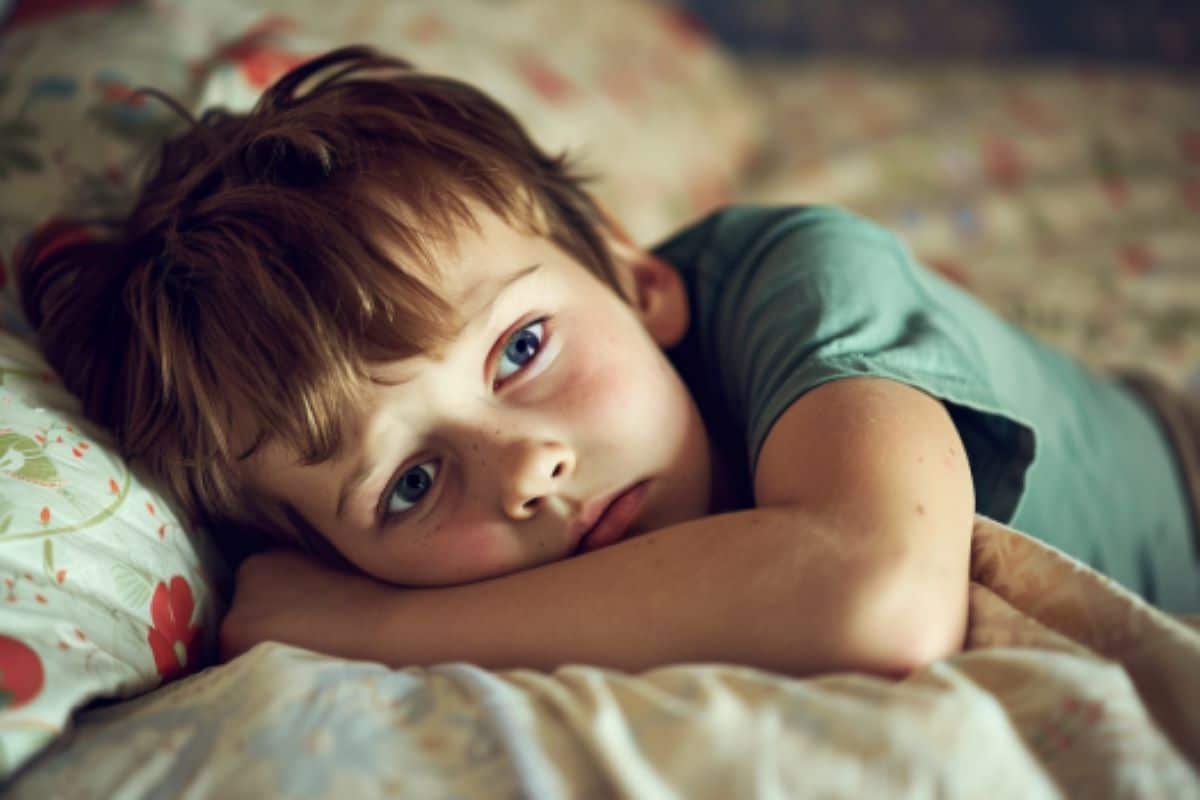Summary: Children who consistently experience insufficient sleep from infancy through early childhood are significantly more likely to develop psychosis as young adults. Analyzing data from the Avon Longitudinal Study of Parents and Children, researchers found that chronic sleep deprivation is a strong predictor of both psychotic disorders and psychotic episodes later in life.
This study, the first of its kind to connect persistent sleep problems with future mental health issues, underscores the importance of addressing sleep issues early. The research also explored potential biological explanations, such as immune system impairments, indicating complex interactions between sleep, physical health, and mental health.
Key Facts:
- Strong Link to Psychosis: Children who consistently had reduced sleep were more than twice as likely to develop psychotic disorders and nearly four times as likely to experience psychotic episodes in early adulthood.
- Long-Term Study Data: The findings are based on the comprehensive Avon Longitudinal Study of Parents and Children, tracking sleep patterns from 6 months to 7 years and mental health at 24 years.
- Potential Biological Links: Preliminary findings suggest that immune system dysfunction, marked by elevated inflammation levels, may partially explain the relationship between sleep deprivation and psychosis, although other factors are likely involved.
Source: University of Birmingham
Children who experience chronic lack of sleep from infancy may be at increased risk of developing psychosis in early adulthood, new research shows.
Researchers at the University of Birmingham examined information on nighttime sleep duration from a large cohort study of children aged between 6 months and 7 years old.
They found that children who persistently slept fewer hours, throughout this time period, were more than twice as likely to develop a psychotic disorder in early adulthood, and nearly four times as likely to have a psychotic episode.

While previous research has highlighted links between sleep problems and psychosis at specific time points, this is the first study to show that persistent lack of sleep is a strong predictor of psychosis.
Lead author, Dr Isabel Morales-Muñoz, said: “It’s entirely normal for children to suffer from sleep problems at different points in their childhood, but it’s also important to know when it might be time to seek help. Sometimes sleep can become a persistent and chronic problem, and this is where we see links with psychiatric illness in adulthood.
“The good news is that we know that it is possible to improve our sleep patterns and behaviours. While persistent lack of sleep may not be the only cause of psychosis in early adulthood, our research suggests that it is a contributing factor, and it is something that parents can address.”
The results, published in JAMA Psychiatry, were based on data taken from the Avon Longitudinal Study of Parents and Children (ALSPAC), which includes records of 12,394 children from 6 months to 7 years, and 3,889 at 24 years old.
While the association between lack of sleep in childhood and psychosis in early adulthood was robust in the study, the team have not proven a causal link and other factors associated with both childhood sleep and psychosis need to be explored.
The team looked, for example, at overall immune system health in the children to see whether impairments in the immune system could also account for some of the associations between lack of sleep and psychosis.
This was tested at nine-years-old by measuring levels of inflammation in blood samples. Results showed that a weakened immune system could partially explain the links between lack of sleep and psychosis, but other unknown factors are also likely to be important.
Dr Morales- Muñoz’ research is part of the Mental Health Mission Midlands Translational Centre, led by the University of Birmingham and funded by the National Institute for Health and Care Research. Its aim is to test and validate treatments in early psychosis and depression among children and young people.
“We know that early intervention is really important in helping young people with mental illness. One of the priorities of the Midlands Mental Health Mission Translational Research Centre of Excellence is to develop and test targeted interventions that could have a real impact on young people who have an illness or who are at risk of developing one.
“Understanding the role that good sleep hygiene plays in positive mental health could be a really important part of this process.”
About this sleep, psychosis, and neurodevelopment research news
Author: Beck Lockwood
Source: University of Birmingham
Contact: Beck Lockwood – University of Birmingham
Image: The image is credited to Neuroscience News
Original Research: Open access.
“Short sleep duration across childhood and psychosis in young adulthood: the role of inflammation” by Isabel Morales-Muñoz et al. JAMA Psychiatry
Abstract
Short sleep duration across childhood and psychosis in young adulthood: the role of inflammation
Importance
Short sleep duration over a prolonged period in childhood could have a detrimental impact on long-term mental health, including the development of psychosis. Further, potential underlying mechanisms of these associations remain unknown.
Objective
To examine the association between persistent shorter nighttime sleep duration throughout childhood with psychotic experiences (PEs) and/or psychotic disorder (PD) at age 24 years and whether inflammatory markers (C-reactive protein [CRP] and interleukin 6 [IL-6]) potentially mediate any association.
Design, Setting, and Participants
This cohort study used data from the Avon Longitudinal Study of Parents and Children. Data analysis was conducted from January 30 to August 1, 2023.
Exposures
Nighttime sleep duration was collected at 6, 18, and 30 months and at 3.5, 4 to 5, 5 to 6, and 6 to 7 years.
Main Outcomes and Measures
PEs and PD were assessed at age 24 years from the Psychosislike Symptoms Interview. CRP level at ages 9 and 15 years and IL-6 level at 9 years were used as mediators. Latent class growth analyses (LCGAs) were applied to detect trajectories of nighttime sleep duration, and logistic regressions were applied for the longitudinal associations between trajectories of nighttime sleep duration and psychotic outcomes at 24 years. Path analyses were applied to test CRP and IL-6 as potential mediators.
Results
Data were available on 12 394 children (6254 female [50.5%]) for the LCGA and on 3962 young adults (2429 female [61.3%]) for the logistic regression and path analyses. The LCGA identified a group of individuals with persistent shorter nighttime sleep duration across childhood. These individuals were more likely to develop PD (odds ratio [OR], 2.50; 95% CI, 1.51-4.15; P < .001) and PEs (OR, 3.64; 95% CI, 2.23-5.95; P < .001) at age 24 years.
Increased levels of IL-6 at 9 years, but not CRP at 9 or 15 years, partially mediated the associations between persistent shorter sleep duration and PD (bias-corrected estimate = 0.003; 95% CI, 0.002-0.005; P = .007) and PEs (bias-corrected estimate = 0.002; 95% CI, 0-0.003; P = .03) in young adulthood.
Conclusions and Relevance
Findings of this cohort study highlight the necessity of addressing short sleep duration in children, as persistence of this sleep problem was associated with subsequent psychosis. This study also provides preliminary evidence for future targeted interventions in children addressing both sleep and inflammatory responses.






